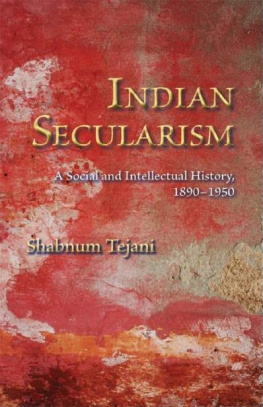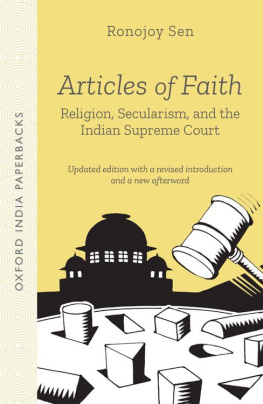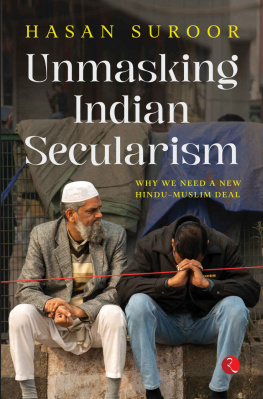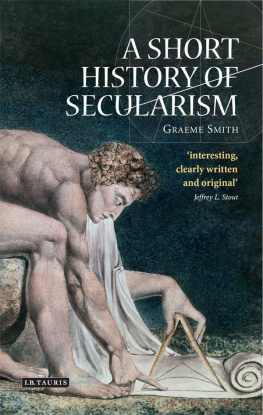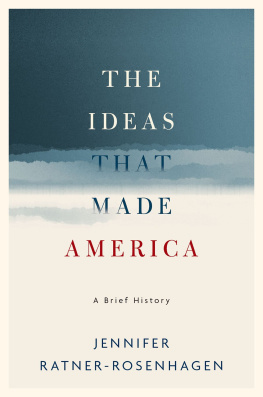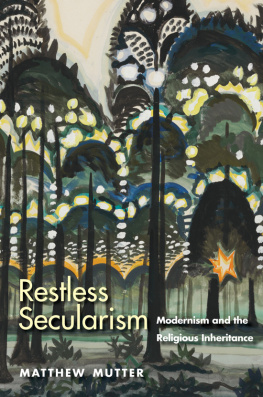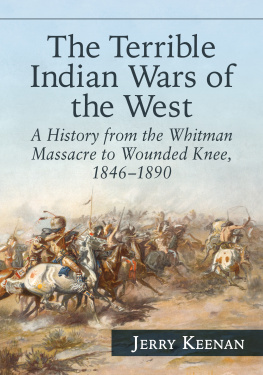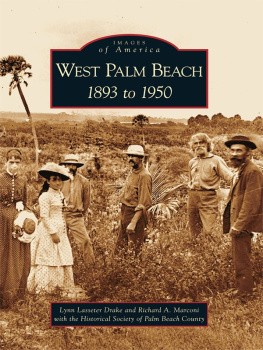Shabnum Tejani - Indian Secularism: A Social and Intellectual History, 1890-1950
Here you can read online Shabnum Tejani - Indian Secularism: A Social and Intellectual History, 1890-1950 full text of the book (entire story) in english for free. Download pdf and epub, get meaning, cover and reviews about this ebook. year: 2008, publisher: Indiana University Press, genre: Religion. Description of the work, (preface) as well as reviews are available. Best literature library LitArk.com created for fans of good reading and offers a wide selection of genres:
Romance novel
Science fiction
Adventure
Detective
Science
History
Home and family
Prose
Art
Politics
Computer
Non-fiction
Religion
Business
Children
Humor
Choose a favorite category and find really read worthwhile books. Enjoy immersion in the world of imagination, feel the emotions of the characters or learn something new for yourself, make an fascinating discovery.
- Book:Indian Secularism: A Social and Intellectual History, 1890-1950
- Author:
- Publisher:Indiana University Press
- Genre:
- Year:2008
- Rating:5 / 5
- Favourites:Add to favourites
- Your mark:
- 100
- 1
- 2
- 3
- 4
- 5
Indian Secularism: A Social and Intellectual History, 1890-1950: summary, description and annotation
We offer to read an annotation, description, summary or preface (depends on what the author of the book "Indian Secularism: A Social and Intellectual History, 1890-1950" wrote himself). If you haven't found the necessary information about the book — write in the comments, we will try to find it.
Shabnum Tejani: author's other books
Who wrote Indian Secularism: A Social and Intellectual History, 1890-1950? Find out the surname, the name of the author of the book and a list of all author's works by series.
Indian Secularism: A Social and Intellectual History, 1890-1950 — read online for free the complete book (whole text) full work
Below is the text of the book, divided by pages. System saving the place of the last page read, allows you to conveniently read the book "Indian Secularism: A Social and Intellectual History, 1890-1950" online for free, without having to search again every time where you left off. Put a bookmark, and you can go to the page where you finished reading at any time.
Font size:
Interval:
Bookmark:
Bloomington & Indianapolis
Telephone orders Fax orders Orders by e-mail | 800-842-6796 812-855-7931 |
Adivasi | term for Indias tribals |
Anjuman | an association, usually of Muslims |
Arya | here refers to Indo-European tribes who are meant to have invaded the Indian subcontinent around the second millennium BC |
Bahujan Samaj | Marathi phrase, loosely meaning the society of the majority, commonly used to denote Dalits in the Hindi belt |
Bania | term used for members of castes associated with commerce, trade, or moneylending |
Bhadralok | decent folk (Bengali); educated high-caste Bengali Hindus |
Bhatia | Bania trading caste from Gujarat |
Chaturvarna | the system of the four varnas (see varna) |
Chitpavan | a subcaste of Brahmans from the Konkan; the caste of the peshwas, who played an important role in Maharashtra as governors and administrators |
Dalit | Marathi/Hindi term meaning the oppressed; term for untouchable groups, now used in preference to the Gandhian appellation harijan |
Dar-ul-harb | Arabic term meaning land of war; a territory in which the sharia is not observed and in which, according to classical Muslim jurisprudence, believers should choose between jihad and hijrat |
Dar-ul-Islam | Arabic term meaning abode of Islam; a territory in which the sharia is observed |
Deshastha | Brahman caste of Maharashtra |
Deshmukh | Marathi term for the head of an armed elite family vested by Maratha rulers with authority over a grouping of villages; a revenue official under the British |
Font size:
Interval:
Bookmark:
Similar books «Indian Secularism: A Social and Intellectual History, 1890-1950»
Look at similar books to Indian Secularism: A Social and Intellectual History, 1890-1950. We have selected literature similar in name and meaning in the hope of providing readers with more options to find new, interesting, not yet read works.
Discussion, reviews of the book Indian Secularism: A Social and Intellectual History, 1890-1950 and just readers' own opinions. Leave your comments, write what you think about the work, its meaning or the main characters. Specify what exactly you liked and what you didn't like, and why you think so.

